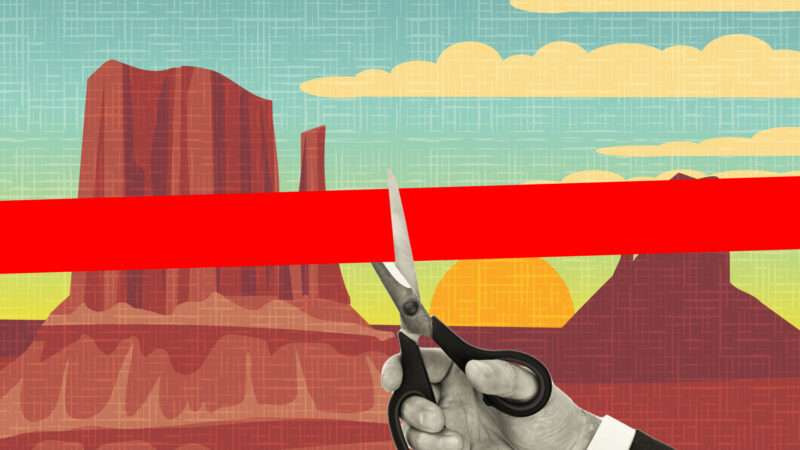
More than one in six workers in Utah needs to get a permission slip from the government before he can do his job—a burden that falls especially hard on immigrants. Last month, Republican Gov. Spencer Cox signed a bill into law that will help break down the barriers that keep foreign and out-of-state professionals from working in Utah.
Senate Bill 35 lets nine state departments issue licenses to foreign professionals who can prove they have the requisite skills and experience to perform their jobs. The bill also applies to workers from other states who aren't licensed in Utah. The Institute for Justice (I.J.) has found that "the average license for low- and moderate-income jobs in Utah takes 130 days of education and experience. And those required classes can be very expensive."
Still, as I.J. notes, "Utah has been a pioneer for overhauling occupational licensing in recent years," a trend that S.B. 35 fits. In 2020, Utah moved to recognize out-of-state workers' licenses. S.B. 35 builds on that in a significant way: Now, if a foreign or out-of-state worker comes to Utah without a license, he can receive a license provided his education and experience are sufficiently similar to Utah's licensing requirements.
Ben Shelton, a public policy associate at the Utah-based Libertas Institute whose work primarily focuses on occupational licensing reform, calls the legislation "significant and potentially groundbreaking." Building on previous state efforts to deregulate occupational licensing, Shelton notes that S.B. 35 "massively expands universal licensing recognition in Utah." It "also enacts compacts that will help increase the mobility of licensed professionals" and should help ensure that "crucial roles in the labor market" are filled, he explains.
S.B. 35 will also cut down on so-called brain waste—when immigrants are forced to take jobs below their pay grades due to difficult licensing processes. "Research shows that strict occupational licensing laws can unnecessarily limit employment options for highly skilled immigrants," says Meagan Forbes, I.J.'s director of legislation and senior legislative counsel. "Under some state licensing laws, licensing boards can arbitrarily block qualified immigrants from working in their chosen field simply because their education, training, and experience are from outside the United States."
A 2019 paper by the Utah-based Center for Growth and Opportunity (CGO) found that "immigrants are around 30–35 percent less likely than otherwise similar natives to have an occupational license." This is because "some occupations require that workers must be a US citizen," "many exams are provided only in English," and schooling and experience completed in one's home country might not transfer to the U.S., discouraging immigrants from retraining.
"Even for trades where the argument for licensing is stronger than, say, cosmetology, immigrants face huge barriers," adds CGO Research Manager Josh Smith, whose work focuses on U.S. immigration policy. What's more, there's little reason to believe that these barriers are resulting in better service for Utahns. Research by I.J. has debunked that common claim, and a study by Stanford University economist Brad Larsen found that consumers value things like prices and reviews over someone's license status. "The political economy story of licensing is well-known," Smith explains. "Protections against competition instead of for consumers."
Barriers that prevent immigrants from working ultimately amount to forgone economic growth. The work force simply isn't as productive. Critical jobs go unfilled, which protects incumbents and prevents competition-driven price decreases in certain industries.
But policy analysts are optimistic that S.B. 35 will build on past reforms to help solve those problems. "Consumers and immigrants are going to benefit from Utah building the runway to get qualified people into licensed trades," says Smith. Forbes notes that S.B. 35 will provide "employers with much-needed access to an expanded labor pool," a point that Shelton echoes. He says the reform "will help to drive innovation, create new jobs, and foster economic growth in Utah."
Occupational licensing reform is a surefire way to get more people working in more optimal ways. Other states would do well to follow Utah's example.
The post Utah Is Making It Easier for Foreign and Out-of-State Professionals To Get Licensed and Get to Work appeared first on Reason.com.







